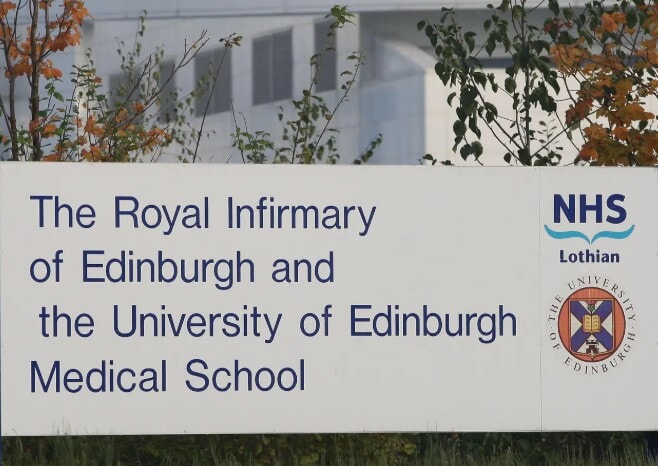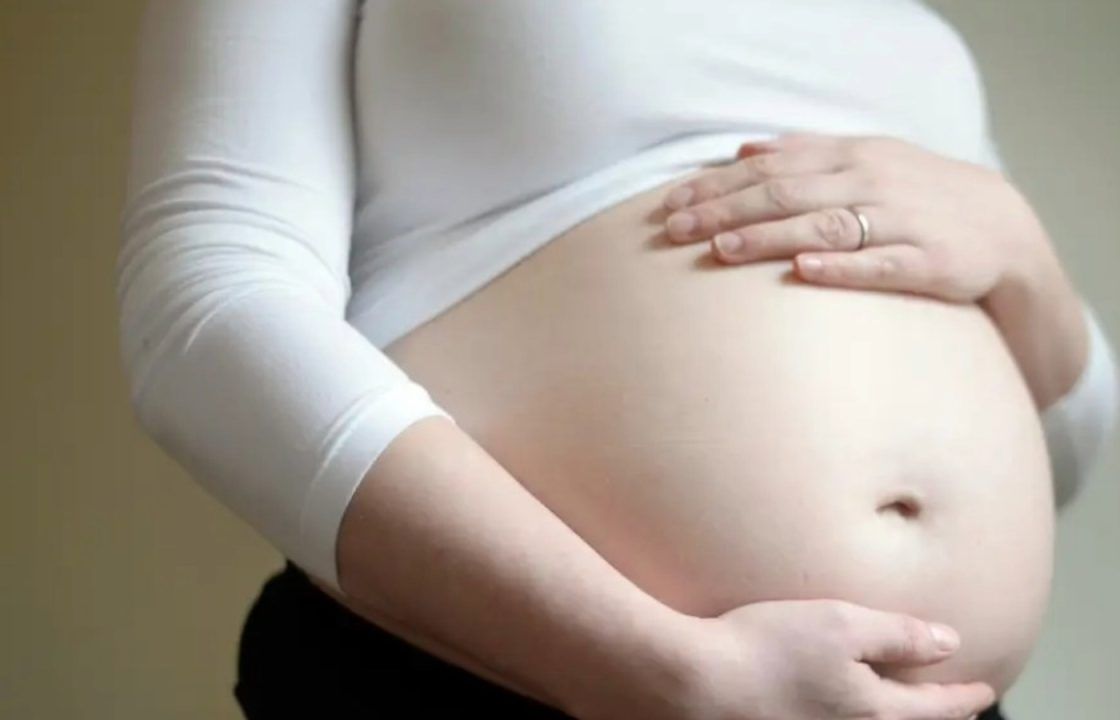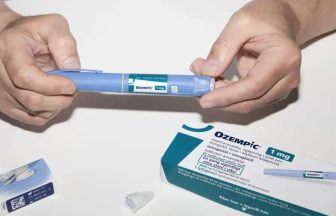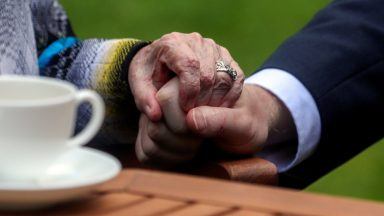Inspectors raised “serious concerns” with both NHS bosses and the Scottish Government after carrying out an unannounced inspection of one of the country’s largest maternity units.
Healthcare Improvement Scotland (HIS) said maternity services staff at the Royal Infirmary of Edinburgh spoke about their “overwhelming feeling of helplessness, frustration and worry for not only patient, but staff safety”.
Staff reported a “suboptimal skill mix” as well as low staffing levels, telling inspectors that this led to “challenges in providing and maintaining one-to-one care for women within the labour ward”.
Meanwhile, a review of incident reports showed “evidence of medication errors occurring involving student midwives”, the report also revealed.
Donna Maclean, chief inspector at HIS said: “During the course of this inspection, we escalated serious concerns within NHS Lothian to senior staff and the Scottish Government.
“These concerns related to culture, oversight of patient safety and staff wellbeing within Edinburgh Royal Infirmary maternity services.”
After their visit in June this year, inspectors told how staff highlighted a “negative culture” in maternity services, with a lack of visible senior management, leading to concerns over patient and staff safety.
Employees there “expressed feeling frustrated at staffing levels”, the HIS report said, with concerns from workers who feared this “left areas short-staffed and staff unsupported”.
The report went on: “Staff told us this presented a safety risk for women, babies and families within their care which they raised on multiple occasions with managers.”
Overall, HIS found 26 areas where it said the required standards had not been met – with its report also detailing how women who were due to have their labour induced could have this delayed by more than a day.
“We observed delays to the induction of labour process of up to 29 hours,” their report said, adding that this was down to capacity and “lack of staff availability”.
In addition, inspectors spoke to women who “described being left alone in a triage room for long periods of time following their initial assessment”.
These patients were “unable to call for help due to the lack of call bells available”, the report said, with one woman saying she was in pain but not able to request any analgesia as a result of this.
Another woman told inspectors her experience was “isolating as she was in the department on her own with no way to access help if required”.
 PA Media
PA MediaThe report also described “challenges in the wider team dynamics” in the maternity unit at the Royal Infirmary of Edinburgh.
“The majority of staff we spoke with described a negative culture, with lack of visible senior management, and expressed concern regarding patient and staff safety within maternity services,” HIS said.
“Many staff we spoke with were very emotional and tearful and described being constantly understaffed and feeling undervalued.”
Midwives who spoke to HIS described a “punitive culture”, saying that when mistakes were made these were “met with criticism rather than constructive feedback or support”.
Ms Maclean said the inspection showed “staff working hard to provide compassionate and responsive care in very challenging circumstances”.
She added that the majority of members of the multidisciplinary team spoken to “were frustrated at staffing levels and told us this presented a safety risk, which they’d raised on multiple occasions with managers”.
Ms Maclean told how NHS Lothian staff had “shared their concerns and feelings of being overwhelmed, unsupported and not listened to”, adding that “this has impacted staff confidence to escalate staffing concerns”.
She continued: “Staff described suboptimal skill mix and challenges in providing and maintaining one-to-one care for women within the labour ward, as well as delays to observations or escalation of clinical concerns.
“Our inspection has highlighted gaps in incident reporting and a reluctance to submit incident reports, with staff describing a culture of mistrust. These are concerning issues that may have significant impact on the learning from adverse events in the system and reduce opportunities to improve safety.”
Professor Caroline Hiscox, the chief executive of NHS Lothian, accepted the report was “concerning”.
She said: “I apologise to women, people who use the service, and their families and can reassure them that these issues are being taken extremely seriously.”
She said an improvement plan was “ongoing” after whistleblowers raised concerns in 2024, with Prof Hiscox saying, however, that “wider-ranging matters, such as staffing, recruitment and working culture within the department, will take time to resolve”.
But she stressed: “Significant investment and improvements have already been made.
“More than 70 additional midwives have been recruited and will be in post by the end of December. Thirty of those are already in post and we are now fully compliant with healthcare safe staffing legislation.
“The other 42 have been recruited to provide additional resilience and to future-proof our maternity service.”
Prof Hiscox continued: “I want to reiterate the apology we made to staff earlier in the year when they told us about their concerns over staffing numbers and about a working culture that was difficult, and where bad behaviours were tolerated.
“That is not acceptable in any workplace.”
She added: “The inspection report from HIS rightly picked up on the actions which are still ongoing.
“We are grateful to HIS for their expertise and remain committed to working with them and other professional organisations to improve our service for our women, people who use the service and our teams.”
Health Secretary Neil Gray said: “The safety and wellbeing of mothers, babies, and staff is our absolute priority. I thank Healthcare Improvement Scotland for their independent assessment of maternity services at the Royal Infirmary of Edinburgh.
“I am deeply disappointed and concerned by the findings in this report, particularly those relating to the experiences of women giving birth. I have sought direct assurances from NHS Lothian’s chief executive that the health board are providing support to women and families using their maternity services, and to staff.
“I am also greatly concerned about the findings relating to poor culture. Every member of staff deserves to feel valued, respected, and supported at work, and their wellbeing should never be compromised. We will not tolerate these issues in our NHS services, and they must be addressed immediately.
“I have spoken directly with NHS Lothian’s chief executive about these issues and the wider serious concerns around patient safety oversight, leadership, staff wellbeing and delays in care.
“We are taking these concerns extremely seriously and I expect NHS Lothian to act immediately to implement all 26 requirements from HIS. I will set out the Scottish Government’s further position in my parliamentary statement later today.
“It is also important to be clear that the report highlights the dedication, hard work, and compassionate care of staff working in very challenging circumstances – I thank those staff in Edinburgh Royal Infirmary and our staff in frontline maternity teams for their commitment and tireless efforts to support mothers and babies across Scotland.
“Inspectors observed strong teamwork and innovation across the multidisciplinary team, and it is important to recognise this.
“I want to reassure expectant mothers and their families that maternity services in Scotland are safe and the care provided across our hospitals is of a very high-quality. We are increasing the number of midwifes in our hospitals and there is a variety of support available for expectant mothers.
“We are providing record funding to NHS Boards and establishing a new minister-led Early Pregnancy, Maternity and Neonatal Oversight Group to strengthen services across Scotland.”
Follow STV News on WhatsApp
Scan the QR code on your mobile device for all the latest news from around the country




























